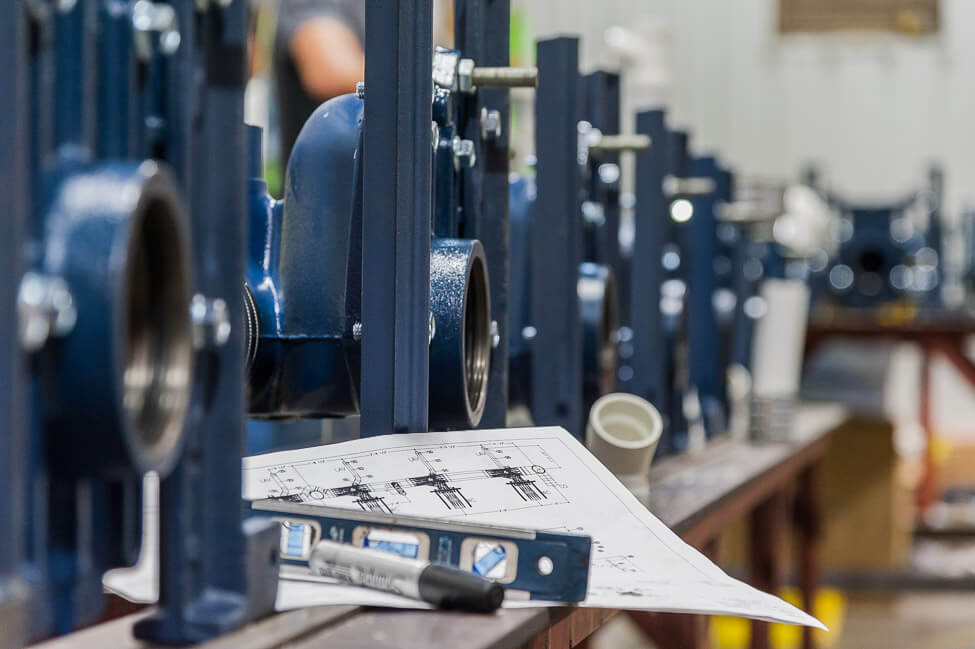What a busy summer we have all endured this year. After the months of heat, humidity and tropical storms it is finally time to relax, right? We know better than that.
With the leaves beginning to turn and our lawns going dormant, we need to start preparing for winter and colder weather. While we don’t have to be worried about White Walkers invading, we do need to make sure we are prepared for what winter will bring. Freezing temperatures can wreak havoc on your facility. Now is the time to make sure you are prepared.
What are the steps you can take to make sure your facility is ready for cold weather and any HVAC needs you will have?
- Does the heat work?
The first question we want to ask is fairly obvious, but many of us will never ask it. We will wait until we have a need for heating and hope it comes on – after all, it was working last winter! If you have not done so already, now is time to have your heating system inspected to ensure it is in proper operating condition. There are several things that can cause issues related to proper operation that can happen while the system is off. Now is the time to find them. If your facility utilizes gas heat with heat exchangers directly in the air stream, we want to make sure that the heat fires properly and that the heat exchanger and vent are in good condition. Something as simple as a bird’s nest can make things interesting real fast. If you are relying on electric heat, we want to take the time to make sure that all of the electrical connections are good, we have good air flow, and that heating elements are intact and in good shape. If your facility has a water-based heating system, hopefully you have already performed your annual boiler preventative maintenance and inspections. If you have not, then we need to act fast. You may have a small list of repairs that need to be made to ensure that your boiler plant is 100% operational. The redundancy of the heating system can be crippled by a simple repair need.
- What could freeze?
The weather in Atlanta is relatively mild when compared to some of the other regions of the country but when it gets cold, it gets cold. We can certainly expect to get some periods of freezing weather, and when we have extended periods of sub-freezing temperatures, we will begin to see things freeze around the city. Don’t let your mechanical system be one of these things. Think about all the water you have at your facility and how it could freeze. Now is the time to drain domestic water lines that could be impacted. Take the time to make sure your cooling tower basin heaters are working properly, along with heat trace and any other devices intended to keep your system from freezing. If you have dry coolers, how confident are you in your glycol levels? I bet you will sleep better knowing they are the correct ratio. We can’t neglect our chilled water system at this time either. Remember that a basic freeze protection sequence is going to call for chilled water flow when the freeze stat trips. Making sure chilled water will flow in winter can save you a huge mess.
- What will we do if something does freeze?
Frozen pipes don’t leak. The trouble starts when we start seeing things thaw. If you are unlucky enough to have something freeze and burst, having a plan to minimize water damage can save time and money. Understanding where isolation valves are, and where the water is going to drain to is critical as your frozen system begins to thaw. A burst chilled water coil can release a large volume of water as it begins to thaw, especially if your chilled water pumps are still running due to the freeze protection sequence. If suspect you have a frozen coil and your system is going to thaw, make sure you have the pumps off and the coil isolated before thawing the unit. Being prepared to catch and handle large volumes of water can be tricky in some cases, so think about your facility and what you would do with 150-200 gallons of water in a rush. Water lines that are not properly insulated and heat traced can also freeze and burst, causing significant damages. Knowing where isolation valves are, and having fast access to them is critical. Review their location and operation with as many people as possible at your facility so that they can be closed as soon as a leak is detected, regardless of where you are.
Admittedly, Lord Stark has much more to fear from the threat of Winter, but keeping our kingdoms safe requires us to be just as diligent or our walls could fall.
Have a question for our experts? Leave your comment below and check out our website for more information.







